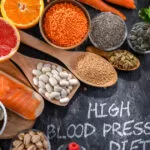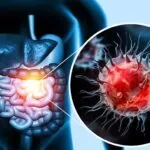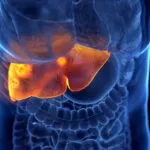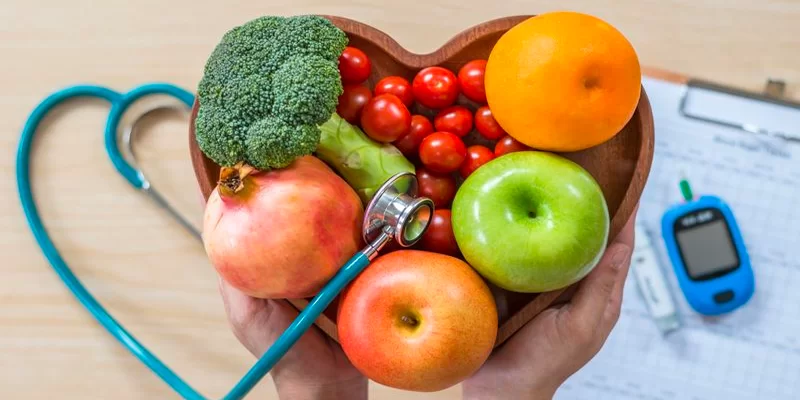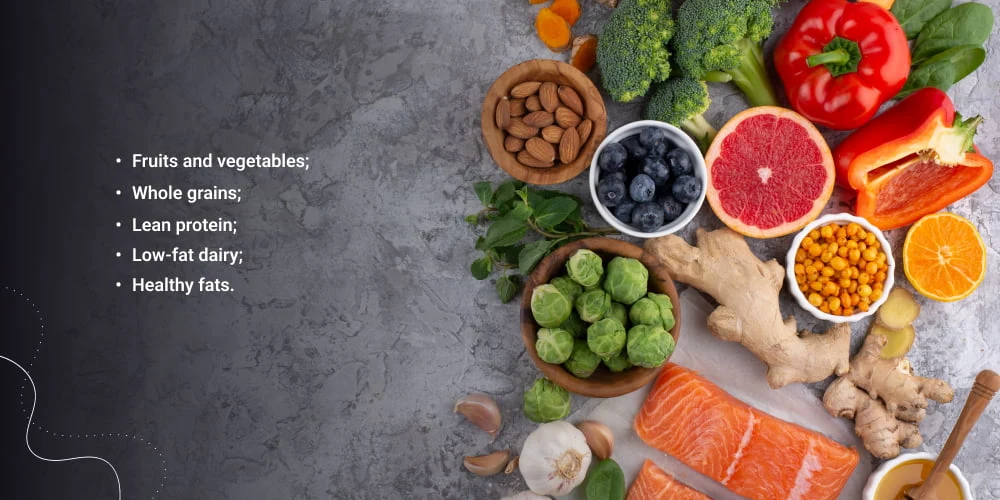Prostate Cancer And Diet Fact
Prostate cancer and diet, balanced diet and consistent physical activity are essential components of overall health and well-being, playing a crucial role in maintaining a healthy weight and promoting optimal health outcomes.
This comprehensive guide is designed to provide valuable insights for individuals diagnosed with prostate cancer who are seeking to enhance their general health and quality of life.
Additionally, this information may also be beneficial for partners, family members, or friends looking to support their loved ones on this journey.
The Impact of a Healthy Lifestyle on Prostate Cancer Management
Understanding the potential benefits of adopting a healthy diet and engaging in regular physical activity can be empowering, especially when navigating the challenges of prostate cancer and its associated treatments. These lifestyle factors can play a pivotal role in managing the side effects of prostate cancer treatments, enhancing overall well-being, and potentially improving treatment outcomes.
The Importance of Maintaining a Healthy Weight
Maintaining a healthy weight is particularly important for individuals with prostate cancer, as excess weight can exacerbate symptoms, increase the risk of complications, and negatively impact treatment efficacy. Achieving and maintaining a healthy weight through diet and exercise can enhance energy levels, reduce fatigue, and support overall physical and mental health throughout the prostate cancer journey.
Tailored Recommendations for Improving General Health
While there is no one-size-fits-all diet or exercise program for individuals with prostate cancer, there are several evidence-based recommendations that can be tailored to suit individual needs and preferences. These lifestyle modifications are aimed at improving overall health, supporting prostate cancer management, and optimizing quality of life:
Balanced Diet:
Incorporate a Variety of Nutrient-Dense Foods: Focus on consuming a diverse range of fruits, vegetables, whole grains, lean proteins, and healthy fats to ensure adequate intake of essential nutrients.
Limit Processed and Sugary Foods: Minimize consumption of processed foods, sugary beverages, and high-fat snacks to reduce inflammation, support immune function, and maintain a healthy weight.
Regular Physical Activity:
Engage in Moderate Exercise: Aim for at least 150 minutes of moderate-intensity aerobic exercise, such as brisk walking, cycling, or swimming, each week to improve cardiovascular health, muscle strength, and overall fitness.
Incorporate Strength Training: Include resistance training exercises at least two days per week to build muscle mass, increase bone density, and enhance physical function.
Stay Hydrated:
Drink Plenty of Water: Stay well-hydrated by consuming at least 8-10 cups of water daily, adjusting for individual needs based on activity level, climate, and health status.
Mindful Eating Habits:
Practice Portion Control: Be mindful of portion sizes and listen to your body’s hunger and fullness cues to avoid overeating and support weight management.
Eat Mindfully: Slow down during meals, savor each bite, and pay attention to the flavors, textures, and sensations of the food to promote mindful eating and enjoyment of meals.
While this guide does not prescribe a specific diet or exercise regimen for individuals with prostate cancer, it offers evidence-based recommendations to inspire positive lifestyle changes that can enhance overall health, support prostate cancer management, and improve quality of life.
By prioritizing a balanced diet, regular physical activity, maintaining a healthy weight, and adopting mindful eating habits, individuals with prostate cancer can take proactive steps towards optimizing their health and well-being. Always consult with healthcare professionals, registered dietitians, or fitness experts to develop a personalized plan that meets individual needs, preferences, and health goals.
Prostate Cancer and Diet: Unlocking the Power of Nutrition
Prostate cancer is a health concern that impacts millions of men worldwide. While medical treatments and screenings are crucial, emerging research suggests that diet can play a pivotal role in managing prostate health and potentially reducing the risk of prostate cancer.
In this article, prostate cancer and diet, we’ll explore the connection between prostate cancer and diet, offering actionable tips and insights to empower men to make informed dietary choices for better prostate health.
Understanding Prostate Cancer
Before diving into the dietary aspects, it’s essential to grasp the basics of prostate cancer. The prostate is a walnut-sized gland located below the bladder in men.
Prostate cancer occurs when abnormal cells in the prostate gland grow uncontrollably, potentially spreading to other parts of the body if not detected and treated early.
Regular screenings and early detection are crucial, but proactive dietary strategies can also make a significant impact on prostate health.
Prostate Cancer and Diet: Key Connections
Antioxidant-Rich Foods for Prostate Health:
Why it Matters: Antioxidants neutralize harmful free radicals in the body, reducing inflammation and potentially lowering the risk of prostate cancer.
Actionable Tip: Incorporate a variety of colorful fruits and vegetables, such as berries, tomatoes, spinach, and broccoli, into your daily meals to boost antioxidant intake.
Healthy Fats and Prostate Cancer Risk:
Why it Matters: Omega-3 fatty acids found in certain fats have anti-inflammatory properties, which may help reduce the risk of prostate cancer.
Actionable Tip: Opt for sources of healthy fats like salmon, avocados, walnuts, and olive oil to support prostate health and overall well-being.
Red and Processed Meats: A Prostate Cancer Concern:
Why it Matters: High consumption of red and processed meats has been associated with an increased risk of prostate cancer.
Actionable Tip: Limit intake of red and processed meats and choose lean protein sources like poultry, fish, legumes, and tofu more often.
Fiber-Rich Foods for Prostate Health:
Why it Matters: Fiber promotes digestive health and may help lower the risk of prostate cancer by reducing inflammation and regulating hormone levels.
Actionable Tip: Incorporate whole grains, legumes, fruits, and vegetables into your diet to increase fiber intake and support prostate health.
Moderate Alcohol Consumption for Prostate Health:
Why it Matters: Excessive alcohol consumption has been linked to an increased risk of prostate cancer and other health issues.
Actionable Tip: If you choose to drink alcohol, do so in moderation. Limit consumption to no more than one drink per day for optimal prostate health.
Practical Steps for Implementing Dietary Changes:
Gradual Dietary Modifications: Start by making small, sustainable changes to your diet rather than attempting drastic overhauls. Focus on adding one new prostate-friendly food to your meals each week and gradually build from there.
Recipe Revamp: Experiment with prostate-friendly recipes that incorporate a variety of nutrient-dense foods. Look for recipes rich in antioxidants, healthy fats, fiber, and lean proteins to support prostate health.
Stay Hydrated: Adequate hydration is essential for overall health and can help flush out toxins from the body, supporting prostate health. Aim to drink at least 8-10 cups of water daily, adjusting for individual needs.
Consultation with a Registered Dietitian: For personalized dietary guidance tailored to your specific needs and health goals, consider scheduling a consultation with a registered dietitian specializing in men’s health and prostate cancer.
How can I adopt a healthier eating routine?
Embracing a healthier diet doesn’t mean sacrificing taste or enjoyment. Food is a delightful and often communal aspect of life, and it’s entirely possible to relish your meals while making health-conscious choices.
A nutritious diet can be both diverse and flavorful. It’s beneficial to explore new foods to diversify your meals and ensure you’re getting a spectrum of essential nutrients. Consider experimenting with a different fruit or vegetable each week to add excitement to your plate.
Start by setting achievable goals and gradually introducing small changes that resonate with you. Attempting to overhaul your diet overnight can be overwhelming, making it challenging to sustain these changes in the long run.
Reduce your intake of unhealthy foods and beverages, such as those laden with sugar, saturated fats, salt, red and processed meats, as well as those containing artificial flavorings or preservatives.
Reading labels on packaged foods can provide valuable insights into their nutritional content, including calorie count, fat, salt, and sugar levels. Opt for products with lower fat, but be mindful that low-fat doesn’t always equate to healthier, as some may still be high in sugar or calories.
If you’re seeking guidance to enhance your diet, consider asking your physician for a referral to a registered dietitian. They can offer tailored advice and support, especially if you have specific dietary requirements or health conditions like diabetes that may be impacted by your diet.
Fruit and Vegetables
Incorporating plenty of fruits and vegetables into your diet is fundamental to maintaining optimal health, as they are rich sources of vitamins, minerals, and fiber. Consuming a variety of fruits and vegetables can help reduce the risk of various health issues, including heart disease and certain cancers, and aid in weight management.
Strive to consume at least five portions (400g) of fruits and vegetables daily. Whether fresh, frozen, dried, or canned without added sugar or salt, every portion counts towards your daily intake. Opt for tinned fruits in natural juice over syrup.
A single portion typically weighs around 80g for fresh, canned, or frozen produce and 30g for dried fruits, ideally consumed during meals. Aim for a colorful assortment of fruits and vegetables each day to benefit from their unique nutritional profiles.
Starchy Foods
Starchy foods are primary sources of carbohydrates, providing energy and promoting satiety. Incorporating starchy foods into your meals daily is essential for balanced nutrition.
Options include cereals, potatoes, bread, rice, pasta, plantain, sweet potatoes, and yams. Opt for wholegrain and high-fiber alternatives whenever possible. As a general guideline, a portion of starchy food is approximately the size of your fist.
Protein-Rich Foods
Protein is vital for building and repairing tissues, maintaining muscle mass, and producing new cells. If you’re undergoing prostate cancer treatment, aim to consume between 1 and 1.5g of protein per kilogram of body weight daily.
Excellent sources of protein include beans, legumes, fish, eggs, and meats. Limit red meat intake to no more than three portions per week (about 350-500g cooked or 700g to 750g raw), which includes beef, pork, and lamb. Avoid processed meats and meats cooked at high temperatures to minimize the risk of bowel and stomach cancer.
Opt for leaner options like skinless chicken, fish, beans, peas, or lentils, which are lower in fat and higher in fiber.
Dairy and Dairy Alternatives
Dairy products are rich in calcium, essential for bone health and overall well-being. However, excessive calcium intake may potentially accelerate prostate cancer growth and spread, although evidence is inconclusive.
Aim for around 700mg of calcium daily, with hormone therapy patients requiring 1200-1500mg to protect bone density. Choose low-fat dairy options, and consider alternatives like fortified plant-based milk, yogurt, green leafy vegetables, and fish with edible bones.
If you’re concerned about calcium intake, consult your healthcare provider about supplementation.
SEE ALSO:Nutrition for Dementia
High-Fat Foods
While fat is essential for bodily functions, excessive consumption can lead to weight gain and increase the risk of aggressive or advanced prostate cancer. Differentiate between saturated and unsaturated fats, with the latter being more heart-healthy.

Unsaturated fats are prevalent in plant-based foods, including olive oil, vegetable oils, avocados, nuts, seeds, and oily fish like salmon, mackerel, and sardines.
Limit saturated fat intake to no more than 30g daily, opting for healthier alternatives whenever possible. Replace animal fats with vegetable oils and choose low-fat or fat-free dairy products.
When cooking, opt for grilling, baking, poaching, or steaming over frying or roasting, and select tomato-based sauces over creamy ones. Incorporate healthy fats from plant sources like avocados, nuts, and seeds into your diet to support overall health.
Managing Fat Intake
- Replace fatty snacks with fresh fruits.
- Limit processed meats and opt for leaner protein sources.
- Choose low-fat poultry or fish over red meat.
- Remove skin from poultry to reduce saturated fat content.
- Use less oil and butter in cooking.
- Opt for healthier cooking oils and salad dressings.
- Choose tomato-based sauces over creamy ones.
- Incorporate healthy fats from plant sources into your diet.
Nausea and Dietary Choices:
If you experience nausea, consult your healthcare provider or dietitian for personalized guidance. Avoiding strong-smelling foods, opting for cold meals, pre-prepared foods, or having someone else prepare meals for you may help alleviate symptoms.
Remember, adopting a healthier diet is a journey, not a destination. Embrace the process, prioritize variety, balance, and moderation, and seek professional guidance when needed to support your unique health and wellness goals.
What kinds of physical activities are recommended?
Engaging in physical activities is vital for enhancing physical, emotional, and social well-being. It aids in weight management, muscle maintenance, and alleviating treatment-related side effects.
Physical activities can be broadly categorized into two types:
Aerobic Exercises: These activities utilize more oxygen, promoting heart health by elevating your heart rate and breathing rate. Examples include walking, swimming, jogging, and cycling.
Anaerobic Exercises: These involve brief, intense bursts of energy aimed at increasing muscle mass and strength. Examples encompass weightlifting, bodyweight exercises, and certain yoga poses. Incorporating both aerobic and anaerobic exercises into your daily regimen is beneficial for overall health.
How much physical activity is recommended?
The ideal amount of exercise varies among individuals based on factors such as:
The stage of your cancer
The type of treatments you’re undergoing
Your current level of strength and fitness
Even minimal physical activity can offer health benefits. Begin at your own pace, avoiding overexertion, and take breaks as needed. Aim for regular physical activity at least two to three times weekly. If you’re new to exercise, start with short sessions of 10 to 15 minutes and gradually increase duration as you build stamina.
Ideally, aim for 30 minutes of moderate exercise on three to five days weekly. Moderate exercise should elevate your heart rate while still allowing you to converse comfortably, similar to a brisk walk.
Additionally, include exercises that enhance muscle mass and strength in your routine. Achieving 30 minutes may seem daunting, but breaking it down into three 10-minute sessions throughout the day can make it more manageable.
While physical activity is generally safe for men with prostate cancer and those undergoing treatment, it’s advisable to consult with your GP, nurse, or oncologist before initiating any exercise program, especially if you have other medical conditions like cardiovascular issues or musculoskeletal problems.
They can provide guidance on safe exercising and may recommend an exercise program or refer you to a physiotherapist for tailored advice.
If you’re on hormone therapy or have bone metastases, consult your physician before engaging in high-impact activities such as running or contact sports.
Tips for incorporating physical activity:
- Engage in activities like walking, swimming, cycling, or gardening.
- Opt for simple lifestyle changes, such as walking a stop earlier or using stairs instead of elevators.
- Perform seated exercises to enhance movement and muscle strength. Visit the NHS website for seated exercise ideas.
- Gradually increase your daily steps, aiming for 10,000 steps as a goal.
- Incorporate gentle resistance exercises using light weights or elastic bands, especially if on hormone therapy and at risk of bone loss.
- Explore various activities to prevent boredom and set achievable goals. Consider exercising with friends or joining group classes.
- Participate in events like Prostate Cancer UK’s March for Men to support a cause while staying active.
Can I exercise after prostate surgery?
If you’ve undergone prostate surgery, it’s crucial to take it easy during the initial weeks post-operation. Your surgeon may recommend short daily walks starting the day after surgery.
Focus on light and gentle exercises to facilitate proper healing. Avoid strenuous activities, heavy lifting, or excessive stair climbing for four to six weeks post-surgery. Always consult with your healthcare provider regarding safe exercise practices and timelines specific to your recovery.
How can I discover opportunities for physical activity?
Local Exercise Classes: Many local and private sports centers offer a variety of exercise classes. Look for classes tailored to your fitness level, and consider trying new activities like Tai Chi, yoga, or badminton.
Local Authority Gyms: County councils often operate affordable gyms with qualified instructors trained to work with cancer patients. Some even offer specialized group sessions for individuals with cancer.
Exercise Referral Schemes: These are specialized exercise programs designed for individuals with health conditions, including prostate cancer. Run by healthcare professionals or experienced fitness trainers, these programs can be recommended by your GP.
Local Walking Groups: Joining a walking group can be a social and enjoyable way to stay active. You’re not obligated to disclose your cancer diagnosis unless you choose to.
Ramblers: Ramblers organizes free group walks across the country. Visit their website to find a group near you.
Couch to 5K: This NHS running program is designed for beginners, gradually guiding you to run 5 kilometers in nine weeks.
Maggie’s: Maggie’s offers complimentary exercise classes for individuals who’ve had cancer. Visit their website for more information.
Macmillan Cancer Support: Macmillan provides a range of resources to encourage physical activity and hosts exercise groups nationwide.
NHS Website: For comprehensive information on exercise benefits, safety tips, and activity ideas, visit the NHS website.
How can adopting a healthy lifestyle mitigate treatment side effects?
Prostate cancer treatments can induce various side effects. While medical interventions can assist in managing these, lifestyle choices, including diet and exercise, can also offer relief.
Weight Gain: Many men undergoing hormone therapy experience weight gain, particularly around the midsection. Maintaining an active lifestyle and consuming a balanced diet can aid in weight management. If weight loss proves challenging, consult your physician about potential referrals to dietitians or weight-loss programs.
Heart Disease and Diabetes: Hormone therapy might elevate the risk of heart disease and type-2 diabetes. Adhering to a nutritious diet and engaging in regular physical activity can help mitigate these risks.
Bone Thinning: Extended hormone therapy can lead to bone weakening, known as osteoporosis, making bones more susceptible to fractures. Lifestyle adjustments can support bone health.
- Calcium and vitamin D play crucial roles in bone strength. While sunlight exposure triggers vitamin D synthesis in the body, obtaining adequate amounts can be challenging, especially during winter.
- Foods rich in vitamin D, like salmon, mackerel, sardines, and fortified products, can supplement this. Consider discussing calcium and vitamin D supplementation with your doctor.
- Excessive alcohol consumption and smoking can exacerbate bone thinning risks.
- The impact of exercise on preventing bone thinning in hormone therapy patients remains inconclusive. Nonetheless, regular physical activity can enhance strength and reduce fall-related fracture risks.
Recommended exercises include
Gentle resistance training with light weights or elastic bands
Weight-bearing activities like walking, stair climbing, tennis, and dancing
Strength and Muscle Loss: Hormone therapy can lead to muscle tissue depletion and decreased physical strength. Engaging in regular resistance exercises, such as light weightlifting, can counteract muscle loss and bolster muscle strength.
Hot Flushes: Hot flushes frequently accompany hormone therapy. Maintaining a healthy weight and reducing consumption of spicy foods, alcohol, and caffeinated beverages may help manage these symptoms.
Some individuals explore herbal remedies like sage tea or black cohosh supplements for relief, although scientific evidence supporting their efficacy is lacking. Consult your doctor before trying any herbal treatments.
Extreme Fatigue: Certain prostate cancer treatments, including hormone therapy, radiotherapy, and chemotherapy, can induce profound fatigue. Moderate exercises like walking or swimming can boost energy levels. Combining these with strength training may yield even better results.
Plan activities during peak energy periods and incorporate frequent breaks when feeling particularly fatigued. Even chair-based exercises can be beneficial.
Anxiety and Depression: Prostate cancer patients often experience periods of anxiety and sadness. Persistent feelings of sadness, altered sleep patterns, or appetite changes may indicate depression. Symptoms of anxiety can encompass irritability, constant apprehension, or breathlessness. Hormone therapy and chemotherapy can also precipitate mood fluctuations.
Physical activity can be instrumental in managing anxiety and depression symptoms and enhancing overall well-being. Relaxation techniques like yoga or meditation might also be beneficial.
Bowel Issues: Radiotherapy can induce bowel problems, including diarrhea. Limiting fiber intake temporarily may alleviate these symptoms. Opt for low-fiber foods like white rice, pasta, bread, skinned potatoes, eggs, and lean meats. Hydration is essential to compensate for fluid loss.
If bloating or excessive gas occurs, consider avoiding certain foods and incorporating herbs or spices like ginger, peppermint, or dill.
Constipation: Pain-relief medications can result in constipation. Hydration is key; aim for approximately two liters (eight glasses) of fluids daily. If water isn’t appealing, opt for sugar-free squash, decaffeinated beverages, or flavor-enhanced water.
High-fiber foods such as wholemeal bread, porridge, and specific fruits like prunes can help. Gentle exercise may also alleviate constipation. If issues persist, consult your doctor about potential laxative options.
Urinary Problems: Certain prostate cancer treatments can hinder urination. Lifestyle modifications, such as maintaining hydration, avoiding bladder irritants like caffeine, and staying physically active, can alleviate urinary issues. Smoking cessation is also beneficial as coughing can strain pelvic floor muscles.
Sexual Life Changes: Adopting a healthy lifestyle can positively influence your sex life. While hormone therapy might affect sexual desire and erectile function, regular exercise can enhance libido, boost self-esteem, reduce anxiety, and increase energy levels.
For more information on managing urinary issues or sexual changes, refer to our interactive online guides.
Questions for Healthcare Professionals:
- Are there dietary restrictions or beneficial supplements during my treatment?
- Can complementary therapies be safely used alongside my treatment?
- Which physical activities are recommended or should be avoided?
- Are there available activity groups or support networks?
Coping with Prostate Cancer: Receiving a prostate cancer diagnosis and navigating its challenges can evoke various emotions, including fear, stress, or anger. Everyone copes differently, and there’s no prescribed emotional response.
Conclusion
Incorporating prostate-friendly foods and dietary habits into your daily routine can be a proactive approach to supporting prostate health and potentially reducing the risk of prostate cancer. While diet is just one piece of the puzzle, combined with regular screenings, exercise, and a healthy lifestyle, it can contribute to better overall well-being and quality of life.
By prioritizing nutrient-dense foods, healthy fats, fiber-rich choices, and moderate alcohol consumption, you can take meaningful steps towards optimizing prostate health and living a balanced, proactive life.
Remember, every dietary choice matters, so let’s make them count for better prostate health today and in the future!

A graduate of Computer Science and Information Management Technology. Diploma – Caregiving, Certificates – Dementia and Diabetes Awareness and Management. A researcher, blogger, songwriter, singer and acoustic guitarist. Born in an environment where natural talents such as healing are imparted at our natural birth. This natural talents of healing is the result of our genetic inheritance and the training from family environment.


